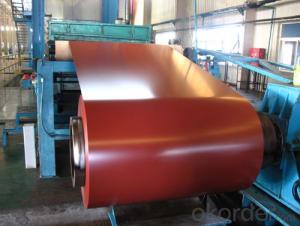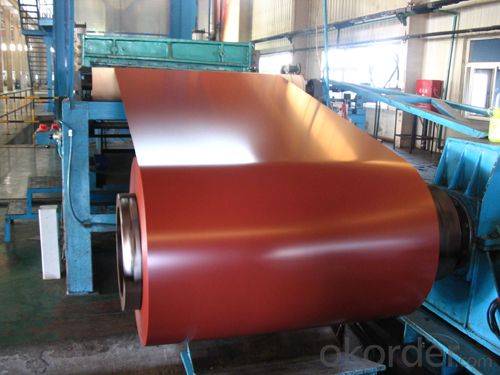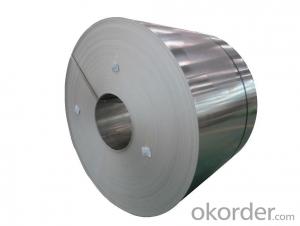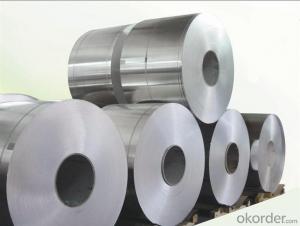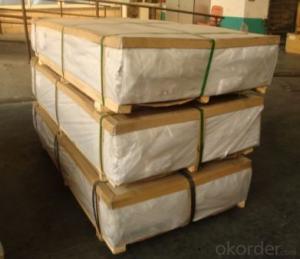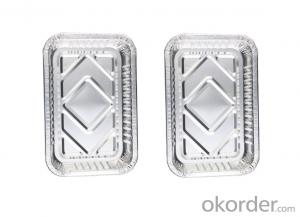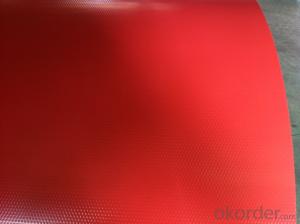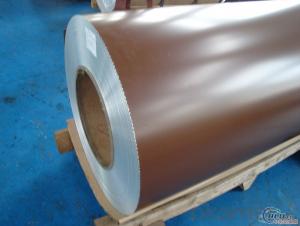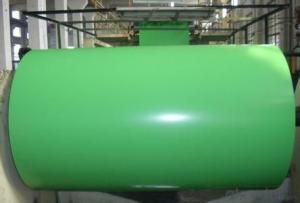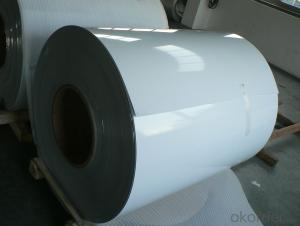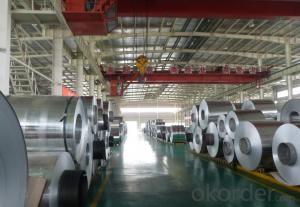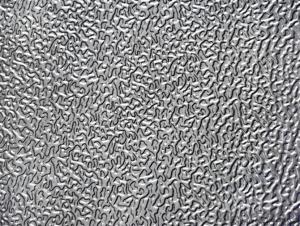Sublimation Aluminum Sheets Uk - Aluminium Coils for Color Coated PVDF 20-40 Microns
- Loading Port:
- Shanghai
- Payment Terms:
- TT OR LC
- Min Order Qty:
- 2 m.t.
- Supply Capability:
- 20000 m.t./month
OKorder Service Pledge
OKorder Financial Service
You Might Also Like
Specification
1.Structure of Aluminium Coils for Color Coated PVDF 20-40 microns
Aluminium Coils for Color Coated PVDF 20-40 microns is one semi-finished aluminium material. This strip can be rolled down to aluminium coil,sheet,circle ect. The alloy AA1050 is widly used in building, industry ect. Its weight is much lower than steel. So many customers choosed aluminium material instead of steel.
2. Main features of Aluminium Coils for Color Coated PVDF 20-40 microns
a.Competitive price---We have our own mills and can produce mill finished aluminium coils, so we can control the production cost better.
b.Professional after-sale service---We have more than 15 years exportation experience and you need not worry about the exporation problems.
c.Fast delivery time---We can control the delivery time within 35 days.
3. Image of Aluminium Coils for Color Coated PVDF 20-40 microns
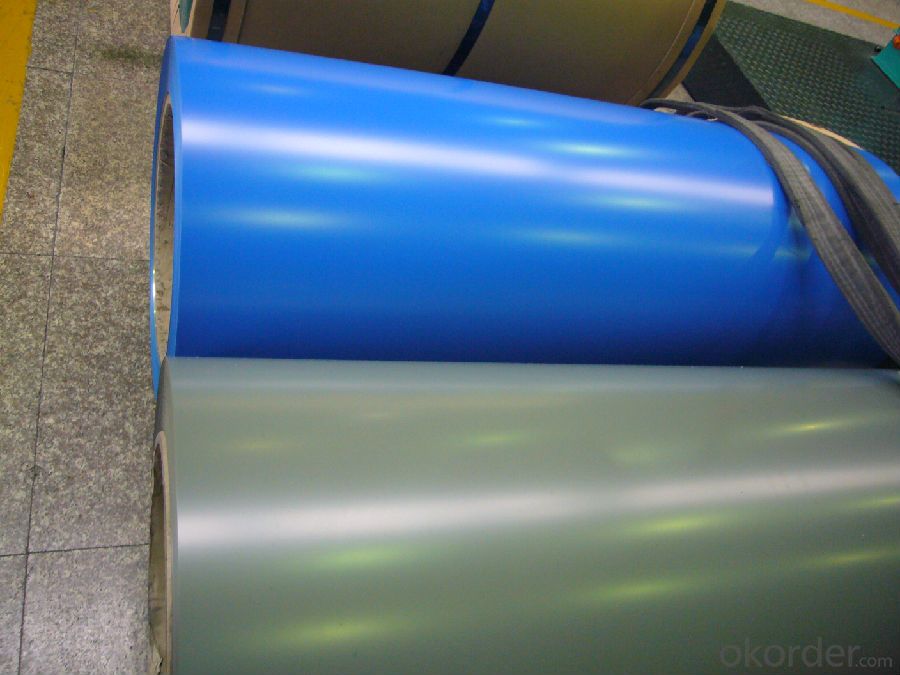
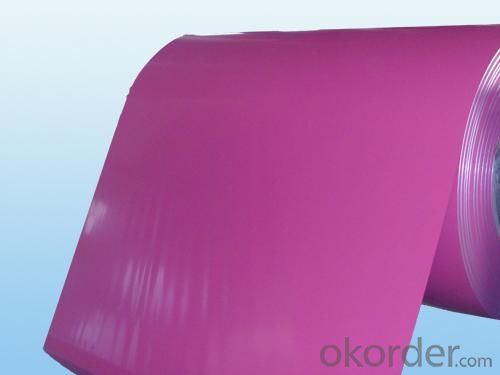
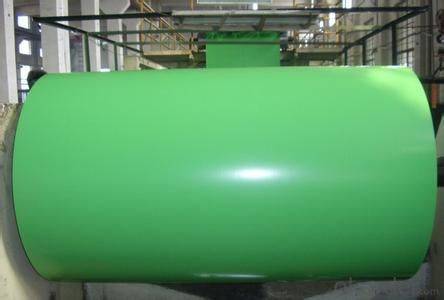
4. Product Specification of Aluminium Coils for Color Coated PVDF 20-40 microns
| Alloy | Temper | Style | Thickness | Width |
| AA1100 | H14 | Direct Casting | 0.2mm-3mm | 1000mm-1500mm |
5.FAQ of Aluminium Coils for Color Coated PVDF 20-40 microns
What is the quality standard?
---Usually our standard is GB3880-2006
What is the largest width?
---It is 2300mm
What is the MOQ?
---Usually we can accept 80 tons.
- Q: What are the limitations of using aluminum sheet?
- There are several limitations associated with using aluminum sheet in various applications. Firstly, aluminum is a relatively soft metal compared to other options such as steel or titanium. This means that it is more susceptible to scratches, dents, and deformation under heavy loads or impacts. Therefore, it may not be suitable for applications that require high strength or resistance to damage. Secondly, aluminum has lower thermal conductivity compared to other metals. This can be a disadvantage in applications where efficient heat transfer is crucial, such as in heat exchangers or cooling systems. Thirdly, aluminum is prone to corrosion. Although it has a natural oxide layer that provides some protection, it can still corrode in certain environments, especially in the presence of moisture or acidic substances. This limits its use in applications where corrosion resistance is vital, such as marine or chemical industries. Additionally, aluminum is a relatively expensive material compared to other options. Its production and extraction processes require significant energy and resources, contributing to higher costs. Therefore, it may not be the most cost-effective choice for some applications. Lastly, aluminum has limited compatibility with certain substances. It can react with certain chemicals, resulting in degradation or contamination. Therefore, it may not be suitable for applications where it will come into contact with substances that can cause adverse reactions. Overall, while aluminum sheet has numerous advantages such as its lightweight nature, good electrical conductivity, and ease of fabrication, it is important to consider its limitations when selecting it for specific applications.
- Q: Can aluminum sheets be used for insulation cladding?
- Yes, aluminum sheets can be used for insulation cladding. Aluminum is a lightweight and durable material that has excellent thermal conductivity properties. It can effectively reflect heat and prevent the transfer of thermal energy, making it an ideal choice for insulation cladding. Additionally, aluminum sheets are resistant to corrosion, moisture, and fire, further enhancing their suitability for insulation applications. Overall, using aluminum sheets for insulation cladding can help improve energy efficiency, reduce heat loss, and enhance the overall performance of a building or structure.
- Q: i am writing an essay about aluminium recycle,,,, and i would like to knowwhy it is important to recycle aluuminium can, what is so harmful about the wastes and some facts about aluminium.Thanx..... i would love if you give me the site address where i can find such infors...
- kind of random but i saw at kmart that coca cola makes dish clothes and sheets out of there recycling.
- Q: Can aluminum sheets be perforated?
- Yes, aluminum sheets can be perforated. Perforation is a process that involves creating holes or punctures in a material, and it can be done on various types of metals, including aluminum.
- Q: 8mm which type of aluminum plate is suitable for bending?
- Specific recommendations were then determined by 6061, 2024, 7075 if the hardness is too high, especially for the T6 state is more, should not bend, unless you're heating and folding the difference between aluminum and aluminum is poor oxidation resistance, tolerance, surface effect, crystal accuracy and the uniform stability of a difference, not only the bending effect difference.
- Q: Can aluminum sheets be used for electronic enclosures?
- Yes, aluminum sheets can be used for electronic enclosures. Aluminum is a lightweight and durable material that offers excellent heat dissipation properties, making it suitable for protecting electronic components. Additionally, aluminum sheets can be easily fabricated to create custom enclosures that provide electromagnetic shielding and protection against environmental factors.
- Q: Are the aluminum sheets suitable for manufacturing solar reflectors?
- Yes, aluminum sheets are suitable for manufacturing solar reflectors. Aluminum is a highly reflective material that can efficiently reflect sunlight, making it an ideal choice for solar reflectors. It has a high reflectivity and low emissivity, allowing it to reflect a significant amount of solar radiation while minimizing heat absorption. Additionally, aluminum is lightweight, durable, and corrosion-resistant, making it suitable for outdoor applications. Its flexibility also allows for easy shaping and forming into various reflector designs. Overall, aluminum sheets provide excellent performance and reliability for manufacturing solar reflectors in solar energy systems.
- Q: Can aluminum sheets be used for food processing equipment?
- Aluminum sheets are suitable for food processing equipment. The food industry favors aluminum for its many advantageous properties. It is lightweight, long-lasting, resistant to corrosion, and possesses excellent thermal conductivity. These attributes make aluminum sheets perfect for various applications in food processing equipment, including mixing bowls, cooking utensils, baking trays, and food storage containers. Furthermore, aluminum is non-toxic and does not interact with food, guaranteeing the safety and quality of processed products. Nevertheless, it is important to note that aluminum should not directly touch acidic or alkaline foods as it may react and impact the taste or quality of the food. In such instances, a protective barrier or lining should be employed. On the whole, aluminum sheets are extensively employed in the food industry due to their adaptability, durability, and food-safe characteristics.
- Q: What does aluminum plate "1060-H24" mean?
- Each digit in the 1060-H24 stands for the following meanings:First, a number of Arabia 1 is representative of pure aluminum (aluminum is aluminum content above 99% aluminum, in addition to the beginning and start with 2-8 are 2### for copper and aluminum magnesium alloy, 3### aluminum manganese alloy, 4### alloy, 5### alloy and so on)
- Q: How do aluminum sheets perform in terms of fatigue resistance?
- Aluminum sheets are known for their excellent fatigue resistance. This means they are capable of withstanding repeated cycles of stress and strain without experiencing significant deterioration in their mechanical properties. Fatigue resistance in aluminum sheets is primarily attributed to their microstructure, which consists of small and uniformly distributed grains. This microstructure helps in distributing the applied stress more evenly throughout the material, preventing the formation and propagation of cracks. Additionally, aluminum sheets can be further enhanced for fatigue resistance through various processing techniques such as heat treatment, alloying, and surface treatments. These techniques can refine the microstructure, increase the strength, and improve the overall fatigue performance of the material. Moreover, aluminum has a relatively low density compared to other metals, which contributes to its superior fatigue resistance. The low density allows for better energy absorption during cyclic loading, reducing the likelihood of crack initiation and propagation. However, it is important to note that fatigue resistance can vary depending on the specific alloy, temper, and thickness of the aluminum sheet. Different aluminum alloys have different mechanical properties and fatigue limits, so it is crucial to select the appropriate alloy and temper based on the specific application requirements. Overall, aluminum sheets are well-regarded for their excellent fatigue resistance, making them a popular choice in industries requiring materials that can withstand cyclic loading and extended service life.
Send your message to us
Sublimation Aluminum Sheets Uk - Aluminium Coils for Color Coated PVDF 20-40 Microns
- Loading Port:
- Shanghai
- Payment Terms:
- TT OR LC
- Min Order Qty:
- 2 m.t.
- Supply Capability:
- 20000 m.t./month
OKorder Service Pledge
OKorder Financial Service
Similar products
Hot products
Hot Searches
Related keywords
